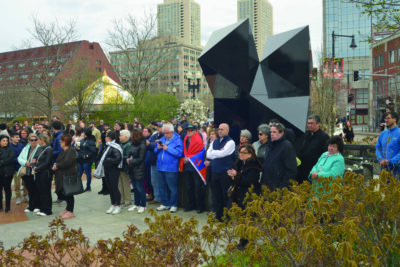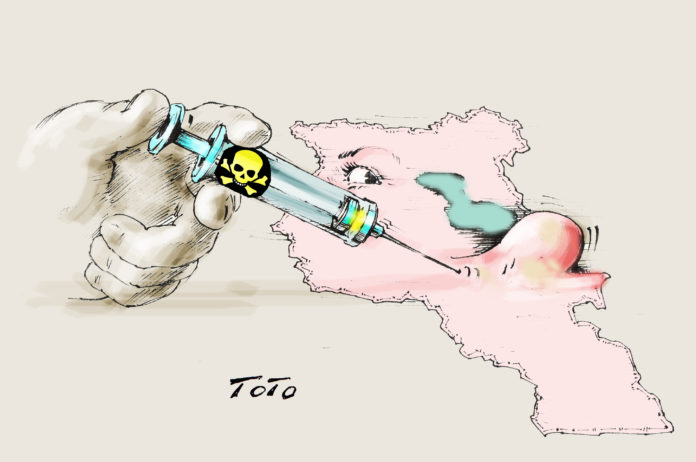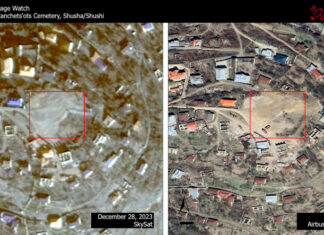In most countries, an environmental dispute would have local dimensions, but not in Armenia.
Because of the country’s size, the dispute regarding the continuation of the mining operation has been amplified to become a part of the national discourse. At issue are 31 million tons of ore and 40 tons of pure gold to be extracted by the Lydian Armenia mining company, based in Toronto, Canada.
The company released a report on August 9, 2019, on the environmental audit conducted by Earth Link and Advanced Resources Development (ELARD) on the progress of Amulsar.
Lydian announced that “the investigative body had analyzed the information and findings provided by the international audit report and found there were no grounds for criminal proceedings against the company.”
There is an uproar in Armenia; environmentalists are up in arms protesting the potential hazards that the Amulsar mining operation poses to Jermuk waters, thermal springs located 10 kilometers from the mines. It will also contaminate the Sevan Lake basin, the environmentalists claim, drawing a picture of doom-and-gloom for the entire country.
However, the ELARD report has concluded that “there is no direct connection between the underground waters located on the territory of the Amulsar project and the thermal hot springs of Jermuk. There is also no connection between the waters of Sevan basin.”










